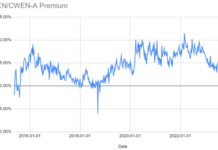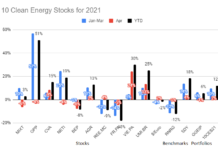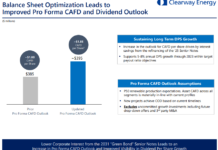Tom Konrad CFA
Disclosure: I am long PW, and have subscribed to the offering of preferred shares.
Several smart money managers I know are excited by the heads-I-win, tails-I-win big opportunity offered by Power REIT’s (NYSE:PW) attempt to foreclose on its railroad lease with Norfolk Southern Corporation (NYSE:NSC) and Wheeling and Lake Erie Railway (WLE). I know this because I’m one of them, and I’ve talked to others about it. Others aren’t quite so sure. Despite the fairly obvious merits of its case, as a tiny company, Power REIT is massively outgunned when it comes to fancy lawyers. NSC, for one, does not seem at all concerned about its prospects: The civil action has not even made it into the company’s disclosure of legal risks in its annual report in either of the last two years.
Now there’s a way to hedge that risk.
The Offering
This article is not about the legal opportunities. See the links above and the company’s most recent litigation update to learn about those. It is about an overlooked opportunity in Power REIT’s ongoing Preferred Stock offering.
Why do I say this opportunity is overlooked? Because, until I asked Power REIT’s CEO David Lesser about it yesterday, he had not even thought about it himself. Nor is it mentioned in the offering documents or presentation.
This is the opportunity: If Power REIT loses the civil action, the value of the preferred should increase.
Preferred stock is usually a hybrid between the characteristics of equity (common stock) and debt (bonds.) This preferred offering is closer to the debt end of the range. The upside for investors is collecting the 7.75% dividend payments, since the preferred can be redeemed at any time after 2018 at par. Like bond interest, preferred dividends are much more secure than dividends on common stock. With a “cumulative” preferred issue like this one, preferred dividends are not lost if the company is temporarily unable to pay. They will accrue until the company is able to resume dividend payments. All accrued and current dividends on the preferred must be paid before the company pays any common dividends.
The company intends to pay preferred dividends currently. If it were to suspend preferred dividends at some time in the future, those accrued dividends would have to be paid as soon it started making a profit. That’s because 90% of REIT profits must be paid out to shareholders in order to maintain REIT status, and preferred dividends (both current and accrued) must be paid before common dividends.
While Power REIT is not currently profitable, this is due to the legal expenses from fighting a civil action against two much larger companies. One reason Power REIT can pay its preferred dividends despite these legal expenses is because its law firm has agreed to accept payment only when the company is able to pay. (Few law firms would accept such terms, but Lesser’s wife is a partner at this particular firm. While the related party transaction has caused some prospective investors to pause, the extended payment terms and the firm’s willingness to allow Lesser to do much of the work which would normally have been done by paralegals would not be available from a firm without this relationship. I also understand that a certain about of uncompensated legal advice arrives in the form of pillow-talk.)
If PW loses, preferred dividends will become tax-free.
All of that explanation was a prequel to why the preferred is an excellent hedge for the risk that Power REIT might lose the civil action. A “loss” in the civil action would basically mean WLE and NSC get everything they want: a return to the status quo.
- PW could not foreclose on the railway lease, and rent would remain at $915,000 annually.
- NSC and WLE indebtedness of at least $16.6 million (plus accumulated interest) under the lease would not be due.
- NCS and WLE would not have to pay PW’s legal expenses.
A win, of course, could see the opposite result on all these accounts, which could mean a cash infusion larger than the current market value of the company. That is why common investors are excited.
Preferred investors, on the other hand, only get the upside in the payment of their 7.75% dividend. This dividend will be more secure if PW wins on any of the above counts. If PW loses, however, the dividend will be a tax free return of capital. That is because PW will be able to write off the $16.6 million indebtedness mentioned in item 2, off-setting PW’s next $16.6 million of profits for tax purposes. If the company were to resume its former $0.10 per share dividend on the common, and the full preferred offering is subscribed, that $16.6 million would be enough to turn all those dividends into a tax-free return of capital for the next 32 years.
Conclusion
If PW loses its civil case on every count, it should be able to continue paying its preferred dividends, but those dividends will become a tax-free return of capital. While PW’s common stock may decline without the prospects of a big pay-off, the value of the preferred should increase given the new, tax-free status. If PW wins, the payment of the dividends will be backed by cash, which should also help the value of the preferred by reducing risk.
Hence, PW’s preferred stock (NYSE:PW-PRA) should be a perfect hedge for any legal risk embodied in the common stock (NYSE:PW.)
The 7.75% annual dividend is nice, too.
This article was first published on the author’s Forbes.com blog, Green Stocks on February 7th.
DISCLAIMER: Past performance is not a guarantee or a reliable indicator of future results. This article contains the current opinions of the author and such opinions are subject to change without notice. This article has been distributed for informational purposes only. Forecasts, estimates, and certain information contained herein should not be considered as investment advice or a recommendation of any particular security, strategy or investment product. Information contained herein has been obtained from sources believed to be reliable, but not guaranteed.








